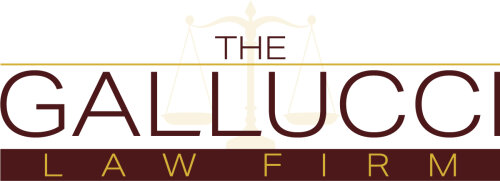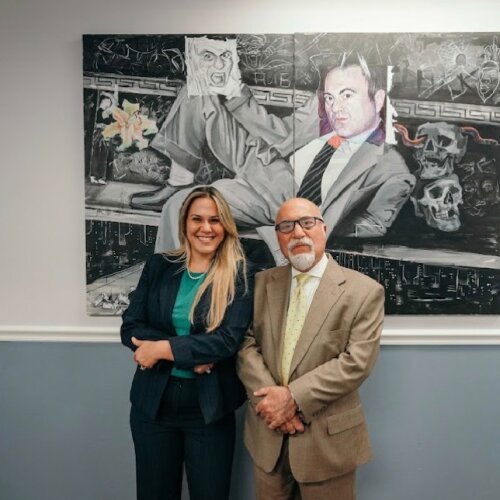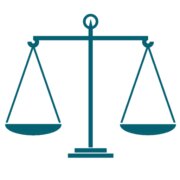Best Criminal Defense Lawyers in New York
Share your needs with us, get contacted by law firms.
Free. Takes 2 min.
Or refine your search by selecting a city:
List of the best lawyers in New York, United States
United States Criminal Defense Legal Questions answered by Lawyers
Browse our 1 legal question about Criminal Defense in United States and read the lawyer answers, or ask your own questions for free.
- Do you prosecute local Philippina for violating ESTAFA laws
- I was scammed by a lady presenting herself as my girlfriend.
-
Lawyer answer by mohammad mehdi ghanbari
HelloBased on the laws of the Philippines, you can file a criminal complaint against the person who scammed you for violating the laws on Estafa (swindling). Estafa is a criminal offense that involves defrauding another person of money or property...
Read full answer
United States Criminal Defense Legal Articles
Browse our 3 legal articles about Criminal Defense in United States written by expert lawyers.
- Clearing Your Record in Texas: 2026 Expunction Rules for US
- Criminal defense in the United States protects your rights from the moment of investigation through trial, sentencing, and appeals, and the stakes can include jail, fines, immigration consequences, and your future job prospects. You always have key constitutional rights: to remain silent, to have a lawyer, to be free from... Read more →
- Texas DWI Laws 2026 First Offense Penalties
- If you are arrested in the United States, you have the right to remain silent, the right to a lawyer, and the right to a fair trial - use those rights from the start. Criminal cases move quickly at the beginning: after arrest come booking, bail, your first court appearance,... Read more →
- Texas Bail Reform 2026: Why Bonds Are Harder to Secure in US
- If your loved one has just been arrested, move fast: confirm the exact charges, find out the bond amount, and contact a criminal defense lawyer immediately. In the United States, you have core rights at every stage - to remain silent, to an attorney, to reasonable bail (subject to exceptions),... Read more →
About Criminal Defense Law in New York, United States
Criminal defense law in New York refers to the representation and protection of individuals and organizations charged with criminal conduct under New York State law. New York's criminal justice system is complex and includes both state and local statutes, from violations and misdemeanors to serious felonies. A criminal defense lawyer’s role is to advocate for their client at every stage, from investigation or arrest through trial, plea negotiations, and, if necessary, sentencing and appeals. The goal is to protect the rights of the accused and to ensure a fair legal process under the United States Constitution and New York State laws.
Why You May Need a Lawyer
There are several situations in which you may require legal assistance in criminal defense:
- If you are arrested or accused of a crime.
- If you are being investigated by law enforcement.
- If you have received a summons or notice to appear in court for a criminal matter.
- If you face charges such as DUI, theft, assault, drug offenses, domestic violence, or other misdemeanors or felonies.
- If your rights were potentially violated during an investigation, search, or arrest.
- If you need to negotiate a plea bargain or determine the best defense strategy.
- If you need guidance on potential immigration or employment consequences of a criminal charge or conviction.
- If you wish to appeal a conviction or sentence.
The criminal justice process can be intimidating and mistakes can have significant, long-lasting impacts. Consulting an attorney ensures your rights are protected every step of the way.
Local Laws Overview
Criminal defense in New York is governed by the New York Penal Law and the Criminal Procedure Law, as well as applicable local statutes. Here are key aspects to understand:
- Classification of Crimes: Crimes are classified as violations, misdemeanors, or felonies. Misdemeanors are less serious and generally punishable by up to one year in jail, while felonies are more serious and can result in more significant penalties, including state prison.
- Arrest Process: After an arrest, you may be taken into custody, charged, and brought before a judge for arraignment, where bail may be set.
- Plea Bargaining: Many cases in New York are resolved through plea bargains, where the defendant agrees to plead guilty to lesser charges in exchange for a reduced sentence.
- Right to Counsel: Under state and federal law, you have the right to an attorney throughout the process. If you cannot afford one, the court will assign a public defender.
- Search and Seizure: Law enforcement must abide by legal standards for searches, including warrants and probable cause. Evidence obtained unlawfully may be suppressed.
- Juvenile Cases: Minors charged with crimes may have their cases heard in Family Court or Criminal Court, depending on the nature of the offense.
- Record Sealing and Expungement: In certain circumstances, you may be able to seal or expunge your criminal record under New York law.
Frequently Asked Questions
What should I do if I am arrested in New York?
Exercise your right to remain silent and ask for a lawyer immediately. Do not answer questions or sign documents without legal counsel.
Do I have to speak to the police if I am suspected of a crime?
No, you are not required to speak to law enforcement beyond providing basic identification information. Always request to have your attorney present for any questioning.
What is the difference between a misdemeanor and a felony in New York?
A misdemeanor is a less serious crime, often punishable by up to one year in jail. A felony is a more serious offense, carrying potential sentences of more than one year in state prison.
What happens at an arraignment?
At an arraignment, you are formally charged and asked to enter a plea. The judge may set bail or a release status, and your rights will be explained.
If I cannot afford a lawyer, will I get one?
Yes, if you are charged with a crime and cannot pay for an attorney, the court will appoint a public defender or legal aid attorney to represent you.
Can police search my home or car without a warrant?
In most cases, law enforcement needs a warrant or your consent to search your home or vehicle. However, there are exceptions, such as probable cause or exigent circumstances.
What is a plea bargain?
A plea bargain is an agreement where you plead guilty to a lesser charge or receive a reduced sentence in exchange for not going to trial.
Will a criminal conviction affect my job or immigration status?
Yes, a conviction can impact employment, professional licenses, immigration status, and housing. Discuss these consequences with your lawyer.
Can I get my criminal record sealed in New York?
In certain situations, particularly after a set period and under qualifying circumstances, you may petition to have your criminal record sealed from public view.
What if I am charged with a crime as a juvenile?
Juvenile cases are often handled in Family Court, with different procedures and potential sentences. In some serious cases, minors may be tried in adult court.
Additional Resources
If you need more information or assistance, you may find help from the following:
- New York State Unified Court System - Offers comprehensive information about courts, procedures, and public resources.
- Legal Aid Society - Provides free legal services to those who qualify, including criminal defense.
- New York County Defender Services - Offers defense representation for those in need.
- NYC Mayor's Office of Criminal Justice - Provides educational materials on the criminal justice process.
- New York State Bar Association - Has a lawyer referral service and information on finding qualified defense attorneys.
- District Attorney's Office - Each county has an office that prosecutes criminal cases and may provide public information on legal processes.
Next Steps
If you or someone you know is facing criminal charges in New York, consider the following steps:
- Do not discuss your case with anyone except your lawyer.
- Gather any documents, evidence, or contact information related to your case.
- Consult with a qualified criminal defense attorney as soon as possible. Many offer free initial consultations to review your situation.
- Prepare a list of questions and concerns to share with your attorney.
- Follow legal advice closely to ensure your rights are fully protected throughout the process.
Remember, prompt and informed action can make a significant difference in the outcome of a criminal case. Seeking professional legal advice is your best path toward a fair resolution.
Lawzana helps you find the best lawyers and law firms in New York through a curated and pre-screened list of qualified legal professionals. Our platform offers rankings and detailed profiles of attorneys and law firms, allowing you to compare based on practice areas, including Criminal Defense, experience, and client feedback.
Each profile includes a description of the firm's areas of practice, client reviews, team members and partners, year of establishment, spoken languages, office locations, contact information, social media presence, and any published articles or resources. Most firms on our platform speak English and are experienced in both local and international legal matters.
Get a quote from top-rated law firms in New York, United States — quickly, securely, and without unnecessary hassle.
Disclaimer:
The information provided on this page is for general informational purposes only and does not constitute legal advice. While we strive to ensure the accuracy and relevance of the content, legal information may change over time, and interpretations of the law can vary. You should always consult with a qualified legal professional for advice specific to your situation.
We disclaim all liability for actions taken or not taken based on the content of this page. If you believe any information is incorrect or outdated, please contact us, and we will review and update it where appropriate.
Browse criminal defense law firms by service in New York, United States
New York, United States Attorneys in related practice areas.
Browse criminal defense law firms by city in New York
Refine your search by selecting a city.

















